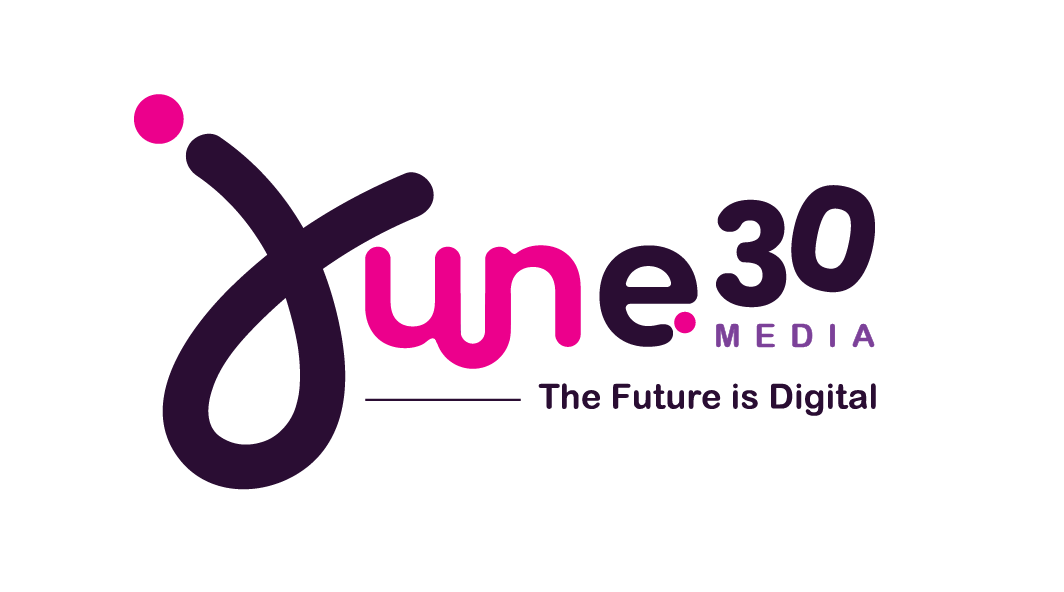T
The landscape of digital marketing is ever-evolving, driven by technological advancements, changing consumer behaviors, and the continuous growth of digital platforms. As we look ahead, several key trends and innovations are set to shape the future of digital marketing. At June30, we believe the future holds far more that we see now, and businesses and individuals must brace themselves for it. Here’s an exploration of what the future might hold.
1. Artificial Intelligence and Machine Learning
Artificial intelligence (AI) and machine learning (ML) are becoming integral to digital marketing. These technologies enable marketers to analyze vast amounts of data, predict consumer behavior, and personalize marketing efforts on a scale previously unimaginable. For instance, AI-powered chatbots provide instant customer service, enhancing user experience and engagement. As these technologies advance, their ability to create highly personalized and efficient marketing strategies will only increase.
Example:
Chatbots: AI-driven chatbots can handle customer inquiries 24/7, providing instant responses and solutions, thereby improving customer satisfaction and retention.
2. Voice Search and Smart Speakers
The rise of voice-activated devices like Amazon’s Alexa and Google Home is changing how consumers search for information. Voice search is becoming more popular, and this trend requires marketers to optimize their content for voice queries. This involves focusing on natural language, long-tail keywords, and answering specific questions that users are likely to ask.
Example:
Voice Search Optimization: Ensuring content is optimized for voice search can increase visibility and drive traffic from users who prefer using voice commands over typing.
3. Augmented Reality (AR) and Virtual Reality (VR)
AR and VR are transforming the way brands interact with their customers. These technologies offer immersive experiences that can significantly enhance product visualization and engagement. For example, AR can allow customers to see how furniture would look in their homes before making a purchase, while VR can provide virtual tours of travel destinations.
Example:
Virtual Try-Ons: Beauty brands can use AR to enable customers to try on makeup virtually, enhancing the online shopping experience and reducing return rates.
4. Video Marketing
Video continues to dominate digital content. With the rise of platforms like TikTok and the growing importance of video content on Instagram and Facebook, leveraging video marketing is crucial. Live streaming, in particular, is gaining traction as it allows real-time interaction and engagement with audiences.
Example:
Live Streaming: Brands can use live streams to showcase product launches, behind-the-scenes content, and live Q&A sessions, fostering a deeper connection with their audience
5. Personalization
Personalization is no longer a luxury but a necessity. Consumers expect personalized experiences based on their preferences, behavior, and interactions with a brand. Advanced data analytics and AI enable marketers to deliver highly targeted content, offers, and recommendations.
Example:
Personalized Emails: Using customer data to send personalized email campaigns that address individual preferences and behaviors can significantly improve open and conversion rates.
6. Privacy and Security
With increasing concerns about data privacy, marketers must prioritize transparency and security. Stricter regulations like General Data Protection Regulations (GDPR) in the EU regions, Privacy Acts in the US, and various Data Protection Regulations in Africa require businesses to handle consumer data responsibly. Building trust through transparent data practices will be essential for maintaining customer loyalty.
Example:
Data and Transparency: Clearly communicating how customer data is collected, used, and protected can enhance trust and compliance with privacy regulations.
7. Privacy and Security
Influencer marketing continues to grow, with brands leveraging influencers’ reach and authenticity to connect with their target audience. Micro-influencers, with smaller but highly engaged followings, are becoming particularly valuable for niche markets.
Example:
Micro-Influencers: Collaborating with micro-influencers can provide authentic endorsements and access to highly engaged communities, driving brand awareness and conversions.
8. Content Marketing
Quality content remains king. However, the way content is consumed is changing. Interactive content such as quizzes, polls, and interactive videos are becoming more popular. Additionally, there is a growing emphasis on creating valuable, informative, and entertaining content that addresses consumers’ needs and pain points.
Example:
Interactive Content: Using interactive content like quizzes can engage users more deeply and provide valuable insights into their preferences and behaviors.
9. Omnichannel Marketing
Consumers interact with brands across multiple channels and devices. An omnichannel approach ensures a seamless and consistent experience, whether customers are shopping online, on mobile, or in-store. This integration can improve customer satisfaction and drive sales.
Example:
Seamless Shopping Experience: Providing a consistent experience across all channels, from social media to the physical store, ensures customers can engage with the brand effortlessly.
10. Sustainability and Social Responsibility
Consumers are increasingly valuing brands that demonstrate social responsibility and sustainability. Marketing strategies that highlight a brand’s commitment to ethical practices, environmental sustainability, and social causes can resonate strongly with modern consumers.
Example:
Ethical Marketing: Highlighting sustainable practices and social responsibility initiatives in marketing campaigns can attract environmentally and socially conscious consumers.
Conclusion
The future of digital marketing is both exciting and challenging, with rapid advancements and evolving consumer expectations. By staying ahead of these trends and leveraging new technologies, businesses can create innovative marketing strategies that drive engagement, loyalty, and growth. Embracing change and continuously adapting to the digital landscape will be key to thriving in this dynamic environment.
Investing in digital marketing today will prepare businesses for the future, ensuring they remain competitive and relevant in an increasingly digital world. As we move forward, the ability to connect with consumers in meaningful and innovative ways will define the success of digital marketing efforts.
This article is culled by June30 Media, a leading digital marketing agency based in Accra, Ghana, and New Jersey, USA.

